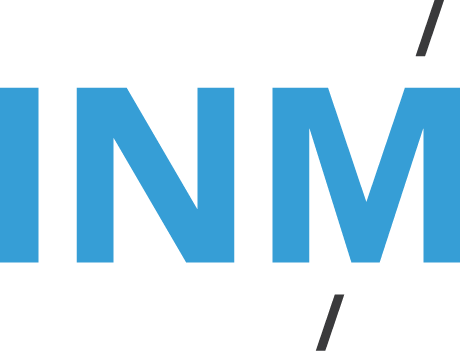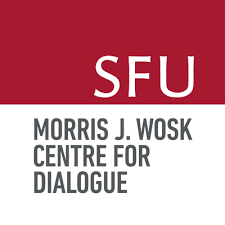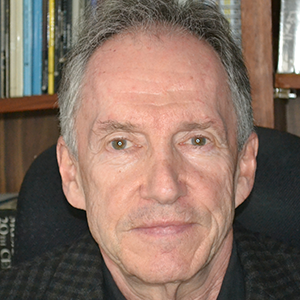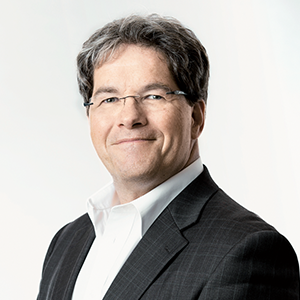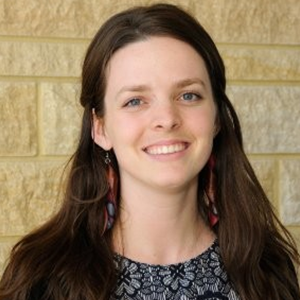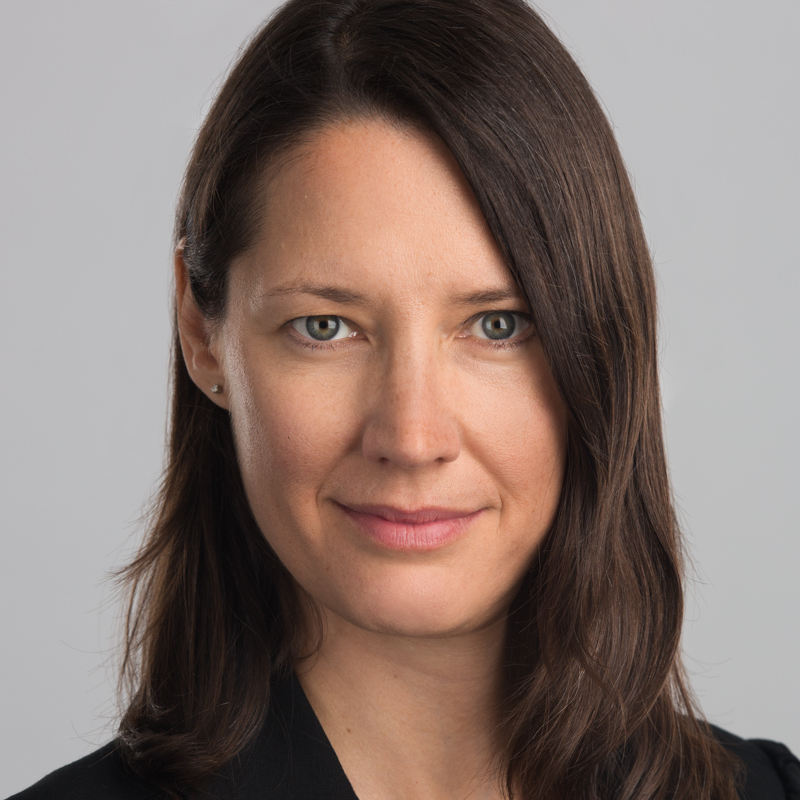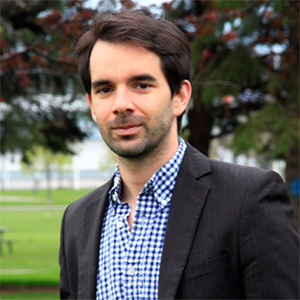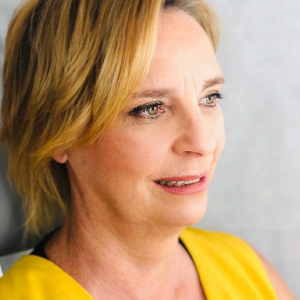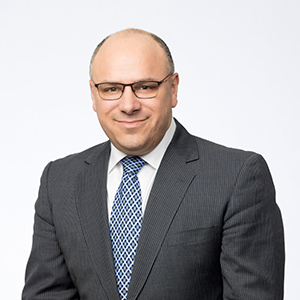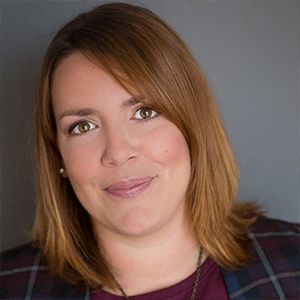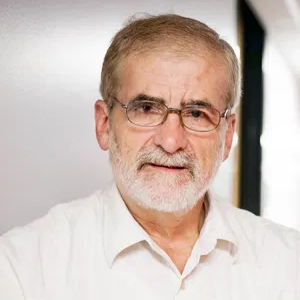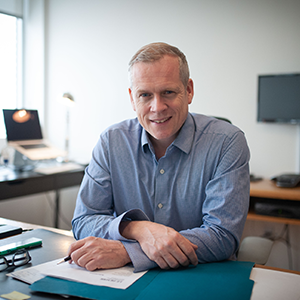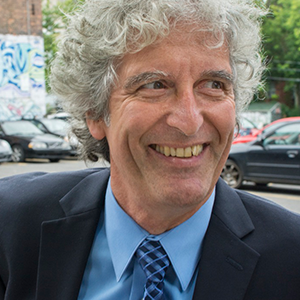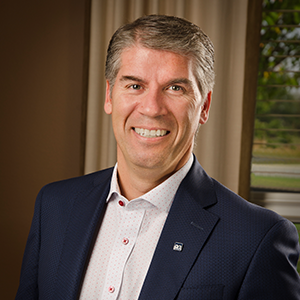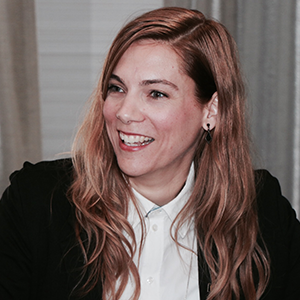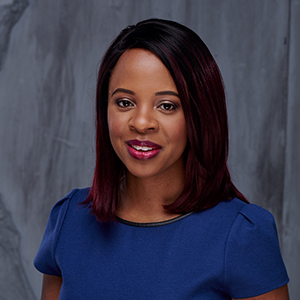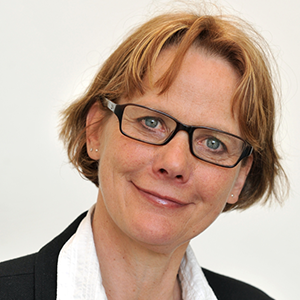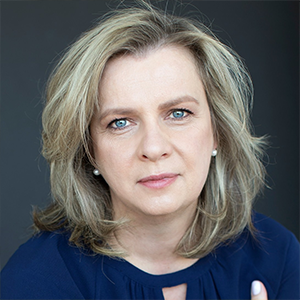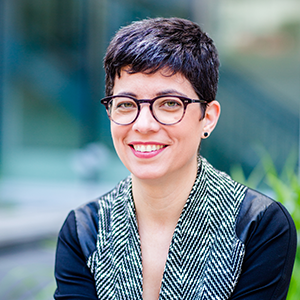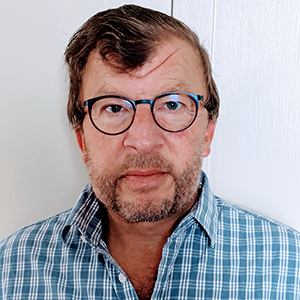Dialogue on the Role of the Media in Canadian Democracy
The media constitute the fourth estate, and act as democracy watchdogs. Their pluralism and independence are indicators of the democratic health of a society. According to the Democracy Index 2019 produced by the Economist Intelligence Unit, civil liberties are the bedrock of democracy. Among these freedoms, it is freedom of expression and the presence of an independent printed and electronic press that have suffered the most in the last decades. Canada is no exception. Problems related to the level of concentration and convergence of the media have often been raised in Canada, particularly in Quebec.
The oligopolistic structure of the media in Canada poses significant democratic risks. This situation is amplified by an increasingly unfavorable economic context for the emergence and survival of independent media. GAFAMs (Google, Apple, Facebook, Amazon and Microsoft) capture a growing share of advertising revenue, traditional media consumption habits are changing, and major media empires are optimizing their operations (via convergence strategies) to achieve profitability.
In addition to the important role of democratic checks and balances, the media play a role in civic education and can help improve political literacy. In this regard, a comparative study of the media systems of 12 Western countries, including Canada, details the media-related factors having an influence (positive or negative) on the level of the public’s civic literacy. These factors include the level of public funding, of pluralism, the level of concentration, and the type of media consumed.
Freedom of the press, independence and pluralism of information are essential to preserve the right of all citizens to be adequately informed on matters of public interest. In a context of an increasing amount of fake news, of the growing influence of opinion leaders in the public sphere, and of the rise of populism and public cynicism towards public affairs, thinking about these issues is essential to securing the future of the Canadian media.
A Dialogue on the Role of the Media in Canadian Democracy
This project, driven by the INM in partnership with the Morris J Wosk Centre for Dialogue at SFU, will convene in November 2020 a group of civil society representatives who are concerned by the future of democratic health in journalism. These conversations will lay the groundwork for a common reflection and issue framing, which could be the subject of a larger public conversation on this issue in 2021–2022.
Over the course of four online sessions, these media specialists will discuss several topics related to the role of media in democracy.
Information Pluralism and Democracy
November 5, 2020 from 12 to 2 p.m. – Montreal time
Challenges Faced by the Canadian Media
November 12, 2020 from 12 to 2 p.m. – Montreal time
Regulatory Framework and Role of the State
November 19, 2020 from 12 to 2 p.m. – Montreal time
Presentation of the public conversation project
November 26, 2020 from 12 to 2 p.m. – Montreal time
Project Objectives
- Address the major issues related to information, public interest journalism and democracy in Canada;
- Identify the needs for additional information or research to properly document these issues;
- Identify the best ways to unite the Canadian media and the ecosystem surrounding them;
- Identify the best ways to mobilize and involve the public in the discussion on these issues.
Presentation of participants
Robert Armstrong is an alumni from Université Laval and a former university professor in economic history. He was also a senior executive with the Canadian Radio-television and Telecommunications Commission (CRTC) and Telefilm Canada. Consultant for broadcasting companies and associations of francophone creators, he is the author of books on the economic history of Quebec (Gage, 1984), on Canadian broadcasting policies (UTP, 2016) and on television in Quebec. (PUL, 2019).
Marc-François Bernier is a Full Professor in the Department of Communications at the University of Ottawa, where he was the Research chairholder in journalism ethics research (2008-2014). He holds a PhD in Political Science (Laval University, 1998) and a Master in Public Communications (Laval University, 1992).
A journalist for almost 20 years, he participated in numerous professional debates and co-edited an ethics guide for Quebec’s journalists (Guide de déontologie de la Fédération professionnelle des journalistes du Québec.) His areas of specialization are sociology, ethics and professional conduct in journalism and his research focuses on the impacts of media convergence with a focus on the quality, diversity and integrity of journalistic information.
He is the author of several books on journalism: Foglia l’Insolent (Édito, 2015), Le Cinquième pouvoir : la nouvelle imputabilité des médias envers leurs publics (PUL, 2016), Éthique et déontologie du journalisme (PUL, 1994, 2004 et 2014), Journalistes au pays de la convergence: Sérénité, malaise et détresse dans la profession (PUL 2008), Une tripartition catégorielle de l’équité journalistique (Éditions GGC, 2006), L’Ombudsman de Radio-Canada : Protecteur du public ou des journalistes? (PUL, 2005), and Les fantômes du parlement: L’utilité des sources anonymes chez les courriéristes parlementaires (PUL, 2001). His new book Les journalismes : Information, Persuasion, Promotion, Divertissement (PUL 2021) is coming out soon.
Michelle joins the Centre for Dialogue with 10 years of experience in the international development sector, working with different federal departments and civil society organizations. As the Engagement and Social Entreprise Manager, Michelle implements and oversees public engagement projects with Federal, Provincial and Municipal governments on a variety of topics. Michelle has a Masters in Development Management from the London School of Economics and a Bachelors in International Development from the University of Ottawa.
Julie Caron-Malenfant has graduated in business administration (1998). She also holds a master’s degree in political science (2002). Julie Caron-Malenfant has 17 years of experience in local development and public participation. She has designed and led more than a hundred citizen and stakeholder consultation processes, particularly for municipalities, ministries, professional orders, and various other organizations in Quebec, Canada, La Francophonie and Mexico.
From 2017 to 2019, she sat on the executive of the Avant-Garde initiative, of Cirano . In 2017, she participated in the Working Group for a Framework of Reference for Participatory Urban Planning formed by the Minister of Municipal Affairs, in addition to having contributed to the Agenda 21 for Quebec culture, to the Public Conversation on the national architecture policy of the Ordre des architectes du Québec, on the process of developing the Montreal Agenda for quality and exemplarity in design and architecture, and sits on the advisory committee of the Strategy Quebec architecture of the Ministry of Culture and Communications. She has written and presented briefs to the National Assembly and is often consulted on issues related to the participation of citizens, as well as all stakeholders in society, in public decision-making and life. democratic.
She is co-author of the Practical Guide to Social Acceptability: avenues for reflection and action (Éditions DPRM, 2009).
She currently sits on the Canadian Commission on Democratic Expression.
Simon Claus holds a doctorate in communication (École des médias, UQAM) and is an associate researcher at Centre de recherche interuniversitaire sur la communication, l’information et la société (CRICIS). In this context, he notably participated in several research projects devoted to the relationships between the concentration of media ownership, technological changes (including the digitization of our societies) and information pluralism following the receipt of three SSHRC grants. (Insight Development: Insight and Connection) and one of the FRQSC (new researchers).
Executive Director of the Canadian Commission for Democratic Expression.
Canadian representative of the Journalism Trust Initiative of Reporters Without Borders.
Former news director and foreign correspondent for Radio-Canada.
Journalist for 30 years, with CTV News since 1994. I am president of my union section Unifor 614M, and I was president of the Professional Federation of Journalists from 2016 to 2019. My specialty is judiciary journalism.
Brent Jolly is the president of the Canadian Association of Journalists. In addition to serving in this role, he is also a director with the National NewsMedia Council of Canada (NNC), the self-regulatory body for print, digital, and periodical publishers. Prior to joining the NNC in 2016, Brent worked as a journalist with a variety of news outlets as both a writer and editor. He holds a Bachelor of Journalism from Carleton University, and an M.A. in Political Science from the University of Toronto, where he studied as a junior fellow at Massey College.
Luce Julien has been Executive Director of Radio-Canada News and Current Affairs since July 2018. Her appointment marked her return to the public broadcaster where she had worked for 23 years. Her roles there included head of radio news and of ICI RDI as well as digital information. Before returning to head the information department, Luce Julien was editor-in-chief of the daily newspaper Le Devoir.
Journalist and manager in the radio and television news sector for some thirty years, Calgary and Montreal Bureau Chief for CTV National News and News Director for Bell Media in Quebec for the last 12 years.
Jean La Rose is a citizen of the Abenaki First Nation of Odanak in Quebec. In his youth, he spent his summers in Odanak with his grandparents. He grew up in Ottawa, where he studied journalism at Algonquin College and received his Bachelor of Arts in Social Communications from the University of Ottawa / Saint Paul University. He also undertook a master’s degree in public administration, but had to abandon his studies after the second year due to family obligations.
From November 2002 to December 2019, Jean La Rose was the Executive Director of APTN, the world’s first national Indigenous broadcaster, which broadcasts programming designed by and for Indigenous people, and about them. Since joining the Network, it has consolidated its financial position to ensure its long-term growth. The Network has grown to four separate channels, including one high definition channel, and now owns and operates two radio stations. ELMNT FM has had HD stations in Ottawa and Toronto since October 2018. APTN now employs 200 people nationwide, which includes radio stations, and provides production opportunities to over 100 Aboriginal producers in Canada. In addition, the Network launched the production company AnimikiSee Digital Productions and the distribution company AnimikiSee Distribution. These new businesses operate as independent companies from APTN.
Anita Li is a media strategist and consultant based in Canada. She is also a journalism instructor in the Greater Toronto Area and at the City University of New York’s Craig Newmark Graduate School of Journalism.
Anita has a decade of full-time experience as a multi-platform journalist in three markets: Toronto, New York City and Ottawa. She started her career as a reporter and editor at Canadian legacy publications, including The Toronto Star, The Globe and Mail and CBC. After that, she worked in strategic, management-level roles at American digital media outlets, such as Complex, Fusion and Mashable. Most recently, Anita was director of communities at The Discourse, a disruptive new player in the Canadian media scene that fills in gaps in news coverage for underserved communities.
Anita is an expert in community-driven journalism, audience engagement, audience-pay business models, newsroom diversity, media ethics and journalism innovation; she’s spoken on these topics in press interviews and at conferences worldwide. Anita is a member of the 2020-21 Online News Association board of directors, as well as an alum of the inaugural 2016 Poynter-NABJ Leadership Academy for Diversity in Digital Media. She also co-founded Canadian Journalists of Colour, a rapidly growing network of racialized media-makers in Canada, in 2018.
Chad Lubelsky (@chadlubelsky) works for the McConnell Family Foundation where he leads the journalism and postsecondary sectors. Before joining the Foundation, Chad was Executive Director of Santropol Roulant. His community engagement activities include the co-foundation of the Montreal Awesome Foundation and his current role as Chairman of the Board at Open North. He has a BA in Communications and Master Degrees in Communication and Leadership.
Marie-Ève Martel is a journalist at La Voix de l’Est and the author of the essay Extinction de Voix – Plaidoyer pour la sauvegarde de l’information régionale. In addition to writing for her own blog, she has been giving presentations on journalism and the role of media in democracy for a number of years. She also sat on the board of the Fédération professionnelle des journalistes du Québec since 2015.
Political Science Degrees: PhD, Carleton University, 1976; MA, Carleton University, 1968; BA, McGill University, 1967.
Research Fellow, Department of Political Science, University of Montreal, since 2006.
Visiting Professor, Umea University (Sweden), Department of Political Science, 1998-2010
Fellow, Institut de recherche en politiques publiques (Montréal) 2004-2008
Member: International Advisory Committee of Democracy: A Citizen Perspective, Interdisciplinary Centre of Excellence, Abo Akadeni University, Finland, 2007-2015, Publications: Numerous books and articles, including Civic Literacy: How Informed Citizens Make Democracy Work, UPNE, 2002.
Brian Myles has been the Publisher of Le Devoir since February 2016. He was an important member of the Coalition pour la pérennité de la presse d’information au Québec and contributed to its efforts to obtain tax credit programs for the media. He worked for 20 years at Le Devoir as a reporter, from 1994 to 2015. In parallel, he taught journalism for over 15 years at University of Quebec at Montreal (UQAM), from 2000 to 2016. He was also President of the Fédération professionnelle des journalistes du Québec, from 2009 to 2013. He holds a Bachelor’s degree and a Master’s degree in communication (journalism major).
Melissa is a producer and co-anchor of APTN National News and hosts a weekly current affairs show called InFocus. She’s a multi-award winning journalist with 24 years working in western and central Canada in daily news and also long-form investigative documentaries.
Alain Saulnier has been a journalist for over thirty years. He has also devoted a large part of his career to campaigning for quality journalism in Quebec, both within press companies and within professional organizations of journalists. Thus, it was under his presidency at the Fédération professionnelle des journalistes du Québec (FPJQ) that the first Guide to the ethics of the journalistic profession in Quebec was adopted.
After working as a journalist and producer in several television news programs, Alain Saulnier headed Radio-Canada’s radio news service from 1999, then all French news services from 2006 to 2012. As managing director, he proposed to Radio-Canada’s information service a vision focusing on investigative journalism, which helped lift the veil on the scandals in the construction industry in Quebec, on the corruption, covert funding of political parties and other important issues. It was under his direction that the program Enquête was created.
Since September 2012, Alain Saulnier has been teaching journalism at the University of Montreal for the DESS program in journalism. In September 2013, he also became executive producer of the program Arrêt sur le monde, produced by CÉRIUM (Center for International Studies and Research of the University of Montreal) and broadcast on Canal Savoir.
In November 2014, he published Ici ÉTAIT Radio-Canada at Éditions Boréal, a book that had a significant impact on the future of the public broadcaster. An English edition, Losing our voice , Radio-Canada under siege , was published in 2015. He has also contributed to several collective works on journalism.
He was in charge of content for the journalism magazine Le Trente from 2015 to 2017 .
Alain Saulnier is a recognized expert and commentator in journalism and media for several programs and publications in Quebec.
Francis Sonier has been the Editor and Executive Director of Acadie Nouvelle since July 2009, after being their Assistant Director for 9 months in the past. This is the second time Francis has been a team member of New Brunswick’s only French-language daily newspaper.
In 1990, after receiving his BA in public communications from Laval University in Quebec, he returned to Acadie—where his parents were born—and joined Acadie Nouvelle as a journalist.
Two years later, he became a journalist at CKRO Radio Péninsule, where he stayed for 2.5 years.
In January 1995, Francis started an M.B.A. at Moncton University. At the same time, he was hired as a radio and television journalist at Radio Canada Acadie.
In October 2008, he left journalism to devote himself to the management of the Acadie Nouvelle newspaper.
Today, Francis leads a team of 65 staff, 45 of whom work at the newspaper’s head office in Caraquet. Francis is also Executive Director of Éditions de la Francophonie, where he succeeds his father Denis, who founded the publishing house. Finally, since July 2015, Francis is President of the Association de la presse francophone, which represents 23 French-language newspapers outside Quebec.
Pascale St-Onge has been the President of the Fédération nationale des communications et de la culture (FNCC-CSN) since 2015 and is currently in her second term. In this role, she led several studies and research projects on media, journalism, journalism’s economic context and possible solutions that could be proposed to ensure its sustainability. She makes frequent political and public representations to advocate for the importance of media, journalism and media plurality for democracy in Canada. She has also participated in numerous panels and expert committees on these topics. FNCC-CSN’s mission is to defend its members’ socio-economical living conditions as well as their work and professional practice conditions. The Federation also represents people working in the arts, culture and events sectors as well as in telecommunications and information technologies.
Nadia Stewart’s love for storytelling has taken her from coast to coast. These days, you’ll find her at Global BC, where she works as a videojournalist. She has worked for CBC, CTV and The Weather Network. Her work has also appeared in Planet Africa Magazine, where she worked as a freelance writer and editor. Nadia is the executive director of the Canadian Association of Black Journalists.
Trine Syvertsen is Professor of Media and Communication at the University of Oslo, and specializes in media policy, history, television and digital media. Recent books include The Media Welfare State: Nordic Media in the Digital Era (with Enli, Mjøs, Moe 2014), Media Resistance; Protest, Dislike, Abstention (2017) and Digital Detox: The Politics of Disconnecting (2020). She is chair of the project Intrusive Media, Ambivalent Users and Digital Detox (Digitox), funded by the Norwegian Research Council for 2019-2023. Recent article: ‘From problem to solution? Why it is difficult to restrict the remit of public broadcasters’ (with Sundet, 2020)
Executive Director of Communications, Branding, and Government relations at Télé-Québec, Nicole Tardif has worked in the media sector in Canada for the past 25 years, including on the communication teams of TVOntario, TFO, TVA, TQS and Astral. She lead various multidisciplinary teams and was the Director of Media relations and Corporate communications at Québécor Media and the Director of Corporate communications at Cogeco. She sat on the boards of directors of Certex, the biggest textile recovery and recycling centre in Quebec for 10 years and the Conseil de presse du Québec et des Arts et la Ville for six years, and is now focusing on her Executive MBA (EMBA) studies at the University of Sherbrooke in addition to her professional responsibilities as part of Télé-Québec management team.
Claire Trottier’s involvement in her community and in the philanthropic sector takes various forms. She sits on the Board of the Trottier Family Foundation, a private foundation supporting projects that promote innovative scientific discovery, enhance education and health care and mitigate climate change. Claire is also Vice President of the McGill University Health Centre Foundation, and Co-Founder and Chair of the Board of the Welcome Collective, an organization that facilitates the integration of refugee claimants in Montreal. In addition, she works with a consortium of foundations to respond to the COVID-19 crisis in Quebec. She is Assistant Professor in microbiology and immunology at McGill University.
Dwayne R. Winseck is a Professor at the School of Journalism and Communication, with a cross-appointment to the Institute of Political Economy, Carleton University, Ottawa, Canada. His research interests include the political economy of media, internet and telecommunications, media history and media theory. He is also the Director of the Canadian Media Concentration Research Project.
Sadia brings a wealth of arts, media, and not-for-profit experience to her role as CEO, Inspirit Foundation.
Before joining Inspirit, Sadia was Managing Director, ROM Canada at the Royal Ontario Museum where she focused on digital content and Indigenous narratives. Before the ROM, Sadia commissioned documentary and current affairs projects from across the country as Director, Original Program Development, CBC News and Centres. She also led Women in Film and Television-Toronto (WIFT-T), a not-for-profit that supports the training and advancement of women in the screen-based industry. Sadia began her career as a journalist, creating hundreds of hours of original, critically acclaimed current affairs and documentary content for Vision TV, CBC and TVO. She has won dozens of awards for her journalism, and has been honoured for her leadership. She sits on many juries and advisory committees and is often asked to speak about media, diversity, gender and leadership issues.
Resource person
Contact Nicolas Vazeille,
Project Manager
Phone: 514 934-5999 / 1 877 934-5999 poste 222
Email: nicolas.vazeille@inm.qc.ca
About
Institut du Nouveau Monde
The Institut du Nouveau Monde (INM) is an independent and non-partisan non-profit organization based in Montreal. Its mission aims at promoting the participation of citizens in Quebec’s democratic life.
Through its action, the INM encourages citizen participation, and contributes to the development of civic literacy, to the strengthening of social bonds, and to the advocacy of democratic institutions. The team behind the INM is driven by the belief that citizen participation bolsters democracy.
Morris J. Wosk Centre for Dialogue at Simon Fraser University
SFU’s Morris J. Wosk Centre for Dialogue creates real-world impact for society’s most pressing challenges by using dialogue and engagement to co-create solutions, exchange knowledge, support community-engaged learning, and to build the capacity of others in the knowledge and practice of dialogue.


